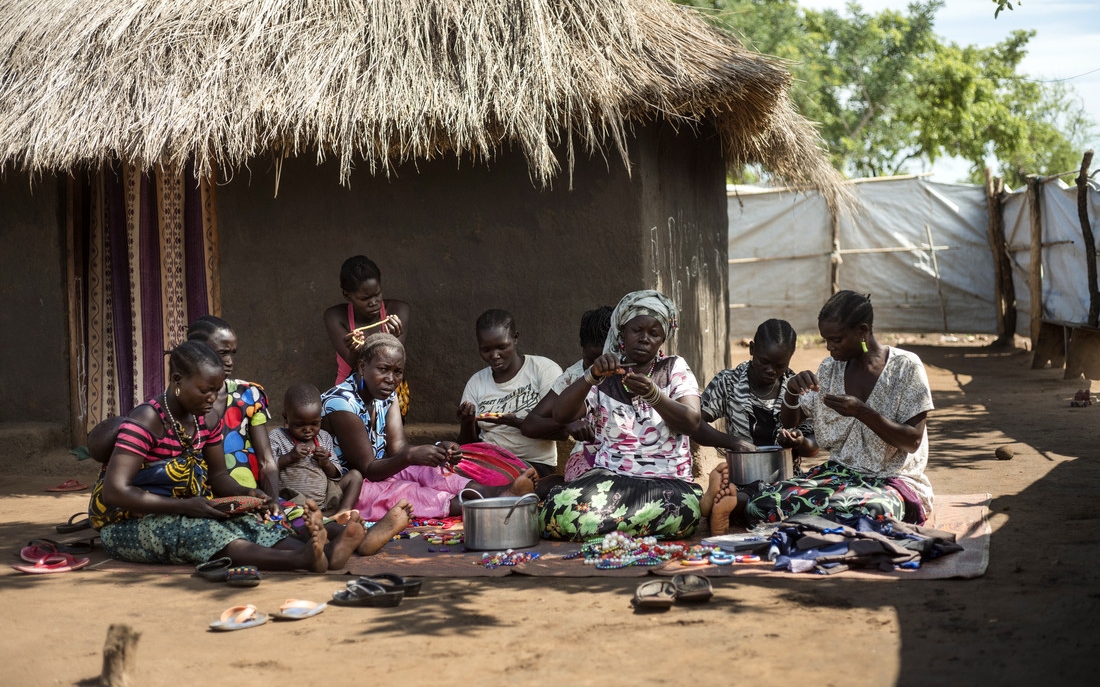In Uganda’s Bidibidi refugee resettlement camp, one woman is helping others make money—and heal—through a jewelry-making group.
Forced from their homes after three years of brutal civil war in South Sudan, more than a million people are starting again as refugees in resettlement areas in Uganda.
Though life is tough here, hope is sprouting.
Take Sarah, who is empowering other women through a handicrafts group she runs out of her home. She knows only too well how easy it is to lose sight of hope when war has taken your loved ones and forced you to leave your country.
Like so many others fleeing South Sudan, Sarah’s had an incredibly traumatic few years. Her husband was killed during the conflict in Juba and she had to run with her children–leaving everything else behind. She ended up in Uganda’s Bidibidi refugee settlement, a 100-square-mile area near the South Sudanese border where the country’s government has given small plots of land to people arriving so they can feed their families, and start again.
Oxfam has an undeniable presence at Bidibidi. We supply 70 percent of its residents with clean water–and we’ve also helped Sarah get an ingenious idea off the ground, too.
Sarah’s helping other refugees start over—and that’s something to shout about
Before the conflict, Sarah enjoyed creating her own brightly colored jewelry and selling it at the local market to supplement her family’s income.
When she got to Bidibidi, her life was consumed with preparing her plot of land. It was extremely hard work for her and her children, so she didn’t give much thought to the jewelry. But then people started to compliment her necklaces.

“The idea of the group just came to me,” says Sarah. “People started asking me how I make the necklaces. They’d bring back materials and other women, and I started teaching them. Now, I just take a megaphone and call the women to come to the meeting.”
With help from Oxfam, Sarah hosts the group at her new home, where the women craft jewelry together to be sold at the local market. As well as putting a bit of money in their pockets, the meetings also give them an opportunity to share their traumatic experiences in a safe space.
Besides the supplementary income, Sarah says the group has given her a renewed sense of purpose. “It gives you something bigger, something that you can push life on with,” she says. “I am staying happy because of that.”
In Bidibidi, your support means Oxfam can help families take their first steps out of poverty.
